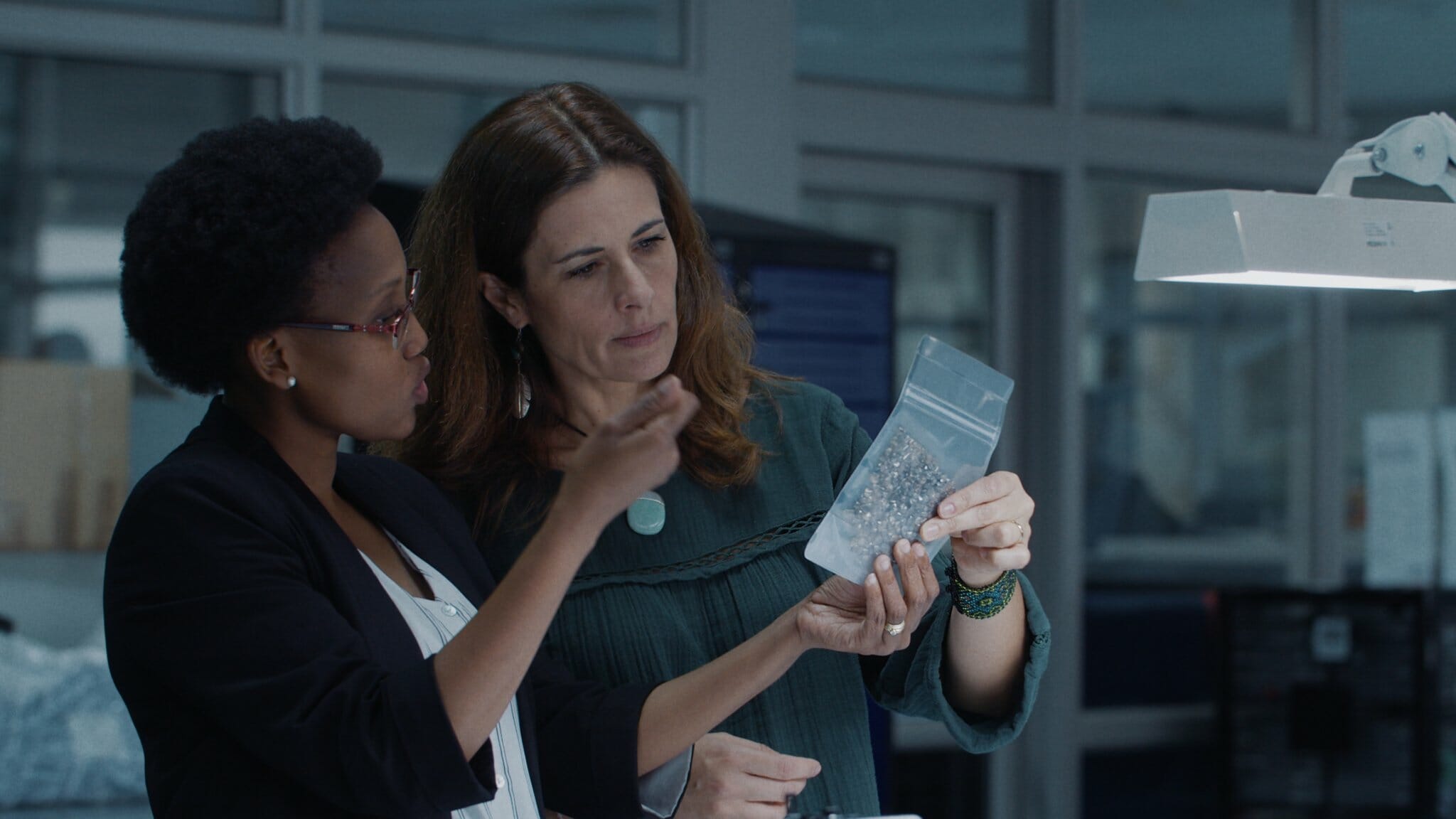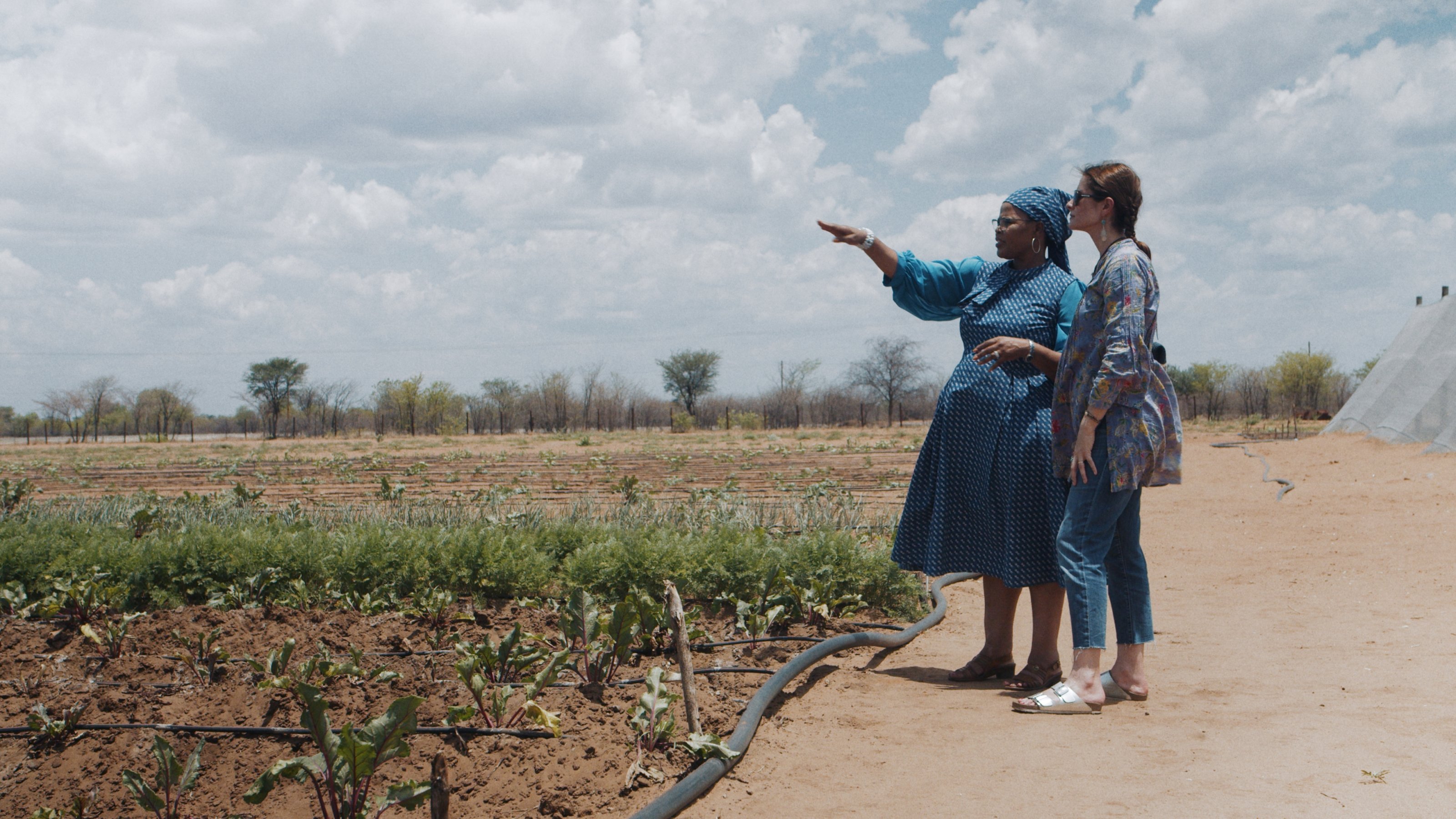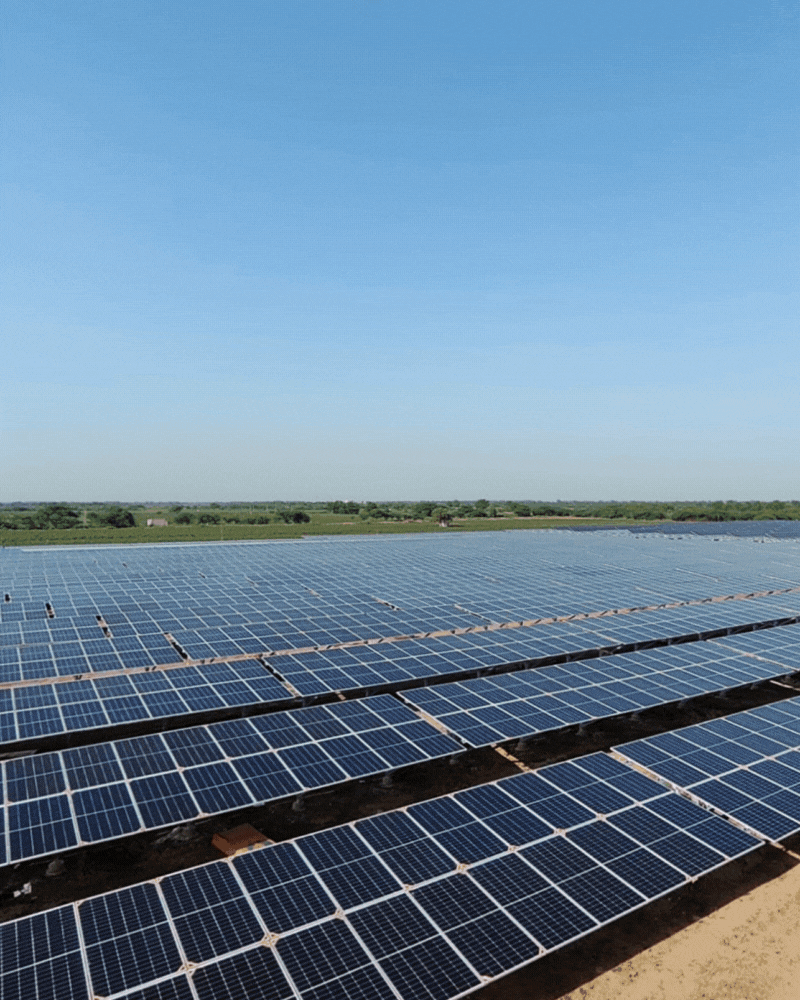Livia Firth on Fashionscapes: The Diamonds of Botswana
Livia Firth, the founder of Eco-Age, reflects on her experience filming “Fashionscapes: The Diamonds of Botswana,” an episode of her documentary series that digs deep into the impact of the diamond industry.

Most of the things I have learnt in my life have not come from school, university, or books and reports. They come from the places I have visited and the people I have met and continue to meet. It is their stories that inform me, their lives that give me perspective on the issues, their dreams that provide resilience and hope, and their solutions that inspire me.
From visiting garment workers in Bangladesh and Cambodia to wool growers in Australia, all the way to rancheros and their tanneries in Brazil—no matter where I am and who I meet, these experiences change my life.

With Eco-Age, I have worked for many years with the luxury jewelry house Chopard, looking at its supply chain and reading as many reports as possible to learn first-hand about the impact of diamond mining. I wanted to find out how the diamond industry that is historically contentious could work in favor of people and the planet. Striking gold, or discovering oil or diamonds, has turned into a tragedy in many countries. What should have been good fortune resulted in inequality, instability and, in some cases, conflict. But, since diamonds were discovered in Botswana in 1967, a different story has emerged. The country has been working hard to turn their good fortune into a model of resource-based development.
Three years ago when I was working with Chopard, we sourced an incredible diamond from the Karowe diamond mine in Botswana, which was set at the heart of the stunning Queen of Kalahari diamond necklace and diamond earrings. The diamond mine was awarded the GCC Brandmark in recognition of excellence in establishing best practice standards for the extractive and mining sector. The award was the result of a stringent validation system, but I wanted to go see for myself and understand exactly the handprint of the diamond mining industry and how it can be a positive force for good.
This is how I found myself visiting Botswana.

As I landed, I didn’t know what to expect, but I knew one thing from experience: one of the best ways to understand the true impact of any industry is to listen to those on the ground. During my visit, I discovered a country whose people are empowered to follow their career of choice. This included a gardener who became a crane operator, an intern who became a mining engineer, and a janitor who was the first to ace a first-aid exam, now on track to become a safety instructor. Although each one had a very different background, I immediately realized that in Botswana there is a striking sense of hope and possibility, not just because of the jobs, but the path to a bigger future for the people working them.
One of my highlights was staying at The Curve Hotel, run by an extraordinary woman who used to work for a diamond mine and developed her own hospitality business from the skills she gained there. Diamond mining has allowed her opportunities that she would never have had before.
Then there was Kgalalelo Mokgweetsi, a community organizer who is employed by a mine to reflect the voices of the local community. She works with them to find out what they need. One successful example is The Mokubilo community garden project, which helps locals farm and provides much-needed food and job training.

I also spent time with some incredible young students at a school in Orapa, funded by a mining company and offering high-quality education to not only children of the employees of the Botswana diamond mine, but most importantly local residents.
Going to Botswana, I was nervous that I would find the imbalance I have witnessed elsewhere. In Bangladesh and other fast fashion ‘hot spots,’ I have seen corporations abuse their power over a dependent economy, and cut and run without any real exit plan.

But in Botswana, I’ve seen a picture of what can happen when a business operates in partnership with government and civil society. Long-term investments are made in collaboration with local communities to ensure that the benefits are truly shared with those on the ground.
I went to Botswana to look at a single supply chain. But as my visit ended, I wondered if Botswana represents something even bigger—a new vision for doing business in a responsible way. And if so, it is certainly something that needs to be protected with integrity and vigilance.
